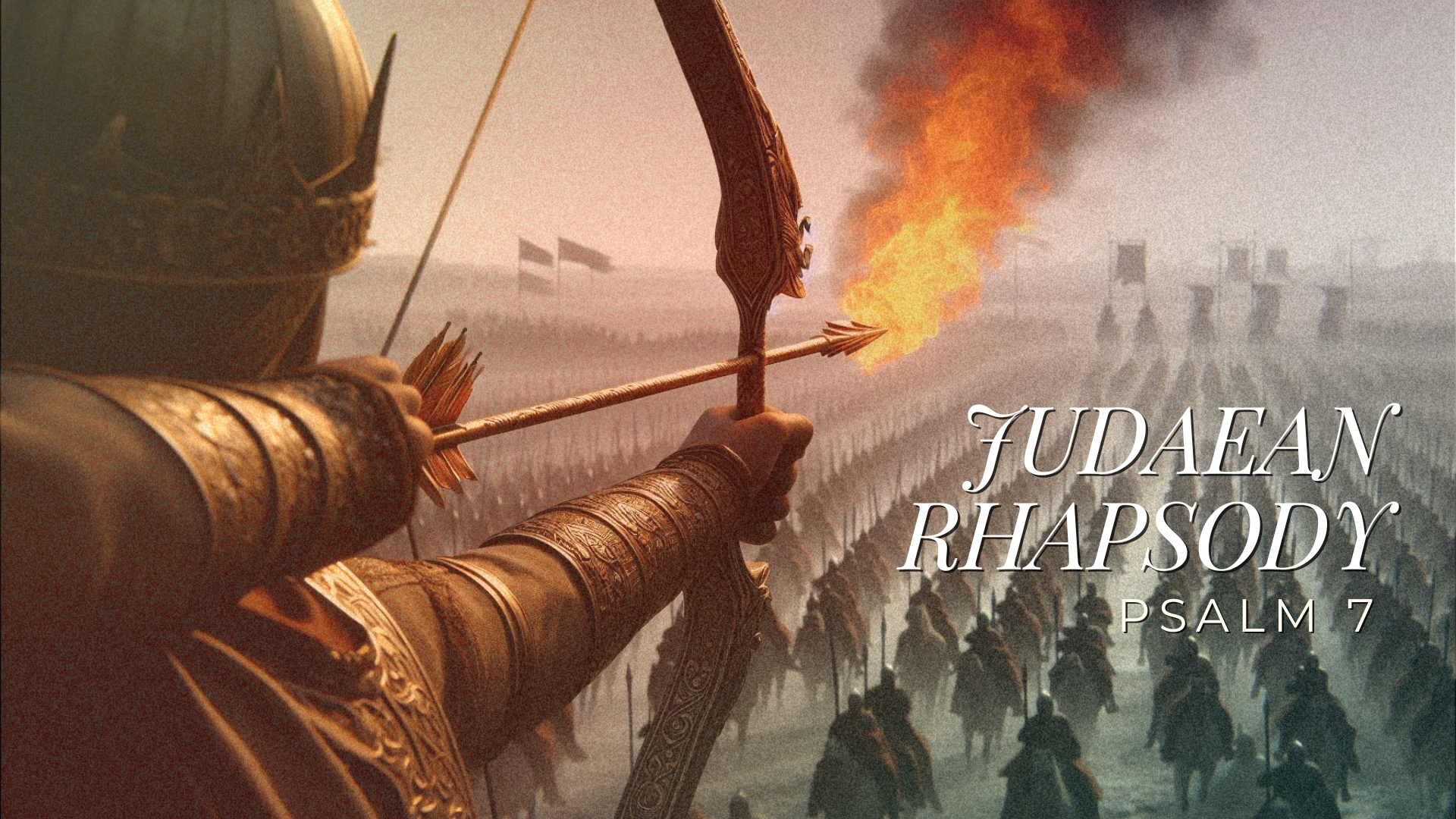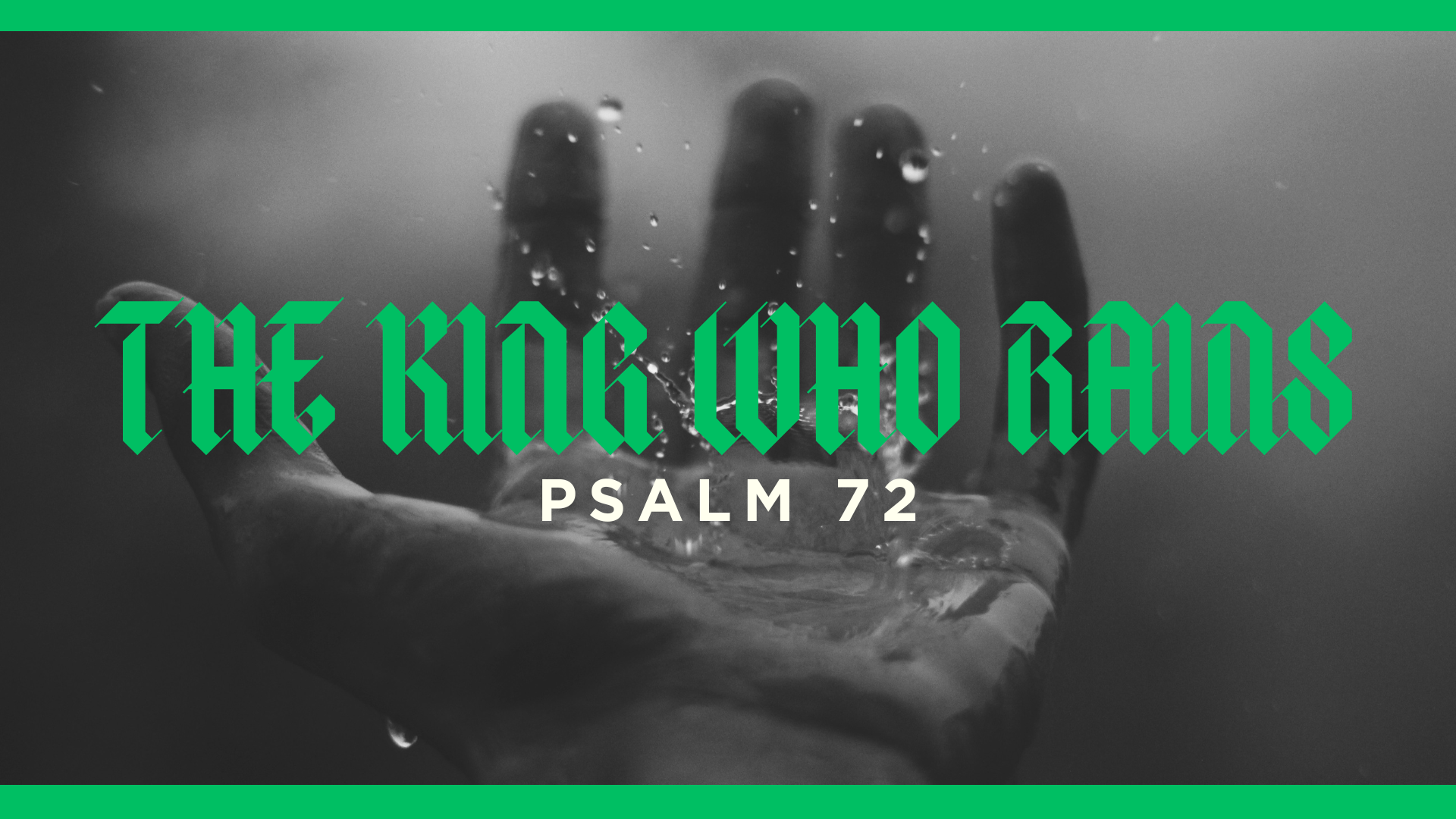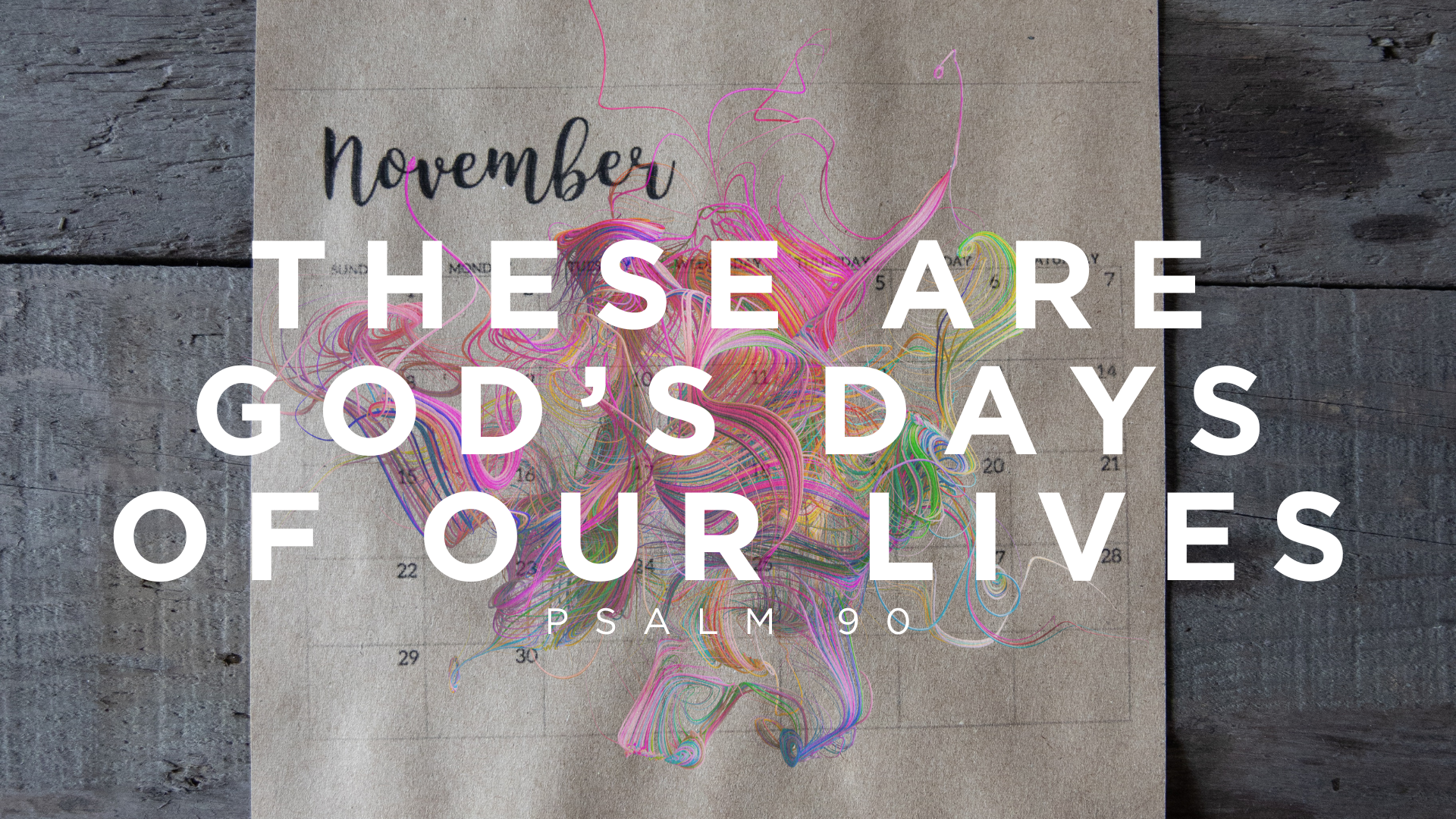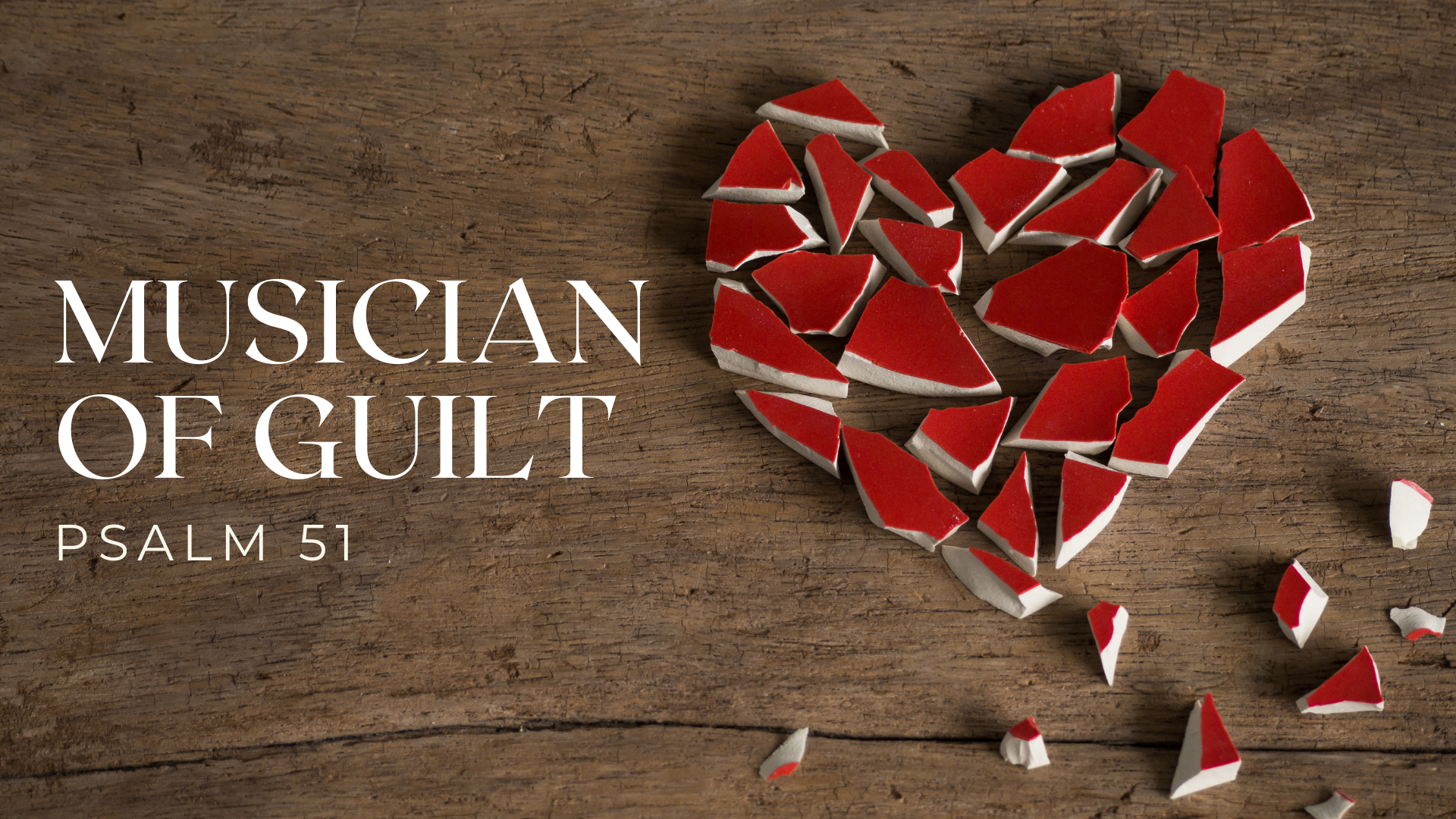
Worship While You Wait (Psalm 33)
Happy new year! The Christmas carols are back on the shelf for another 11 months. There are so many Christmas songs to listen to. Everybody has a different favorite. But there’s really only one New Year’s song, right? Auld Lang Syne. We all know it even though we don’t know what it means.
It’s an old Scottish song, first written down in the late 1700’s.[1] Did you know there are traditional movements you’re supposed to make as you sing it? It’s meant to be sung in a group. Participants stand in a circle and cross their arms to grab the opposite hand of those beside them and then, as the song ends, the group rushes to the middle in a throng of camaraderie and nostalgia.
Psalm 33 is the Auld Lang Syne of the Psalter. In fact, there’s some evidence that it was sung at Jewish new year celebrations.[2] But it’s not just a tipsy tune about old friends and pint glasses. It’s a song about our amazing God, Who created this world so He could love you and me. And how reminding ourselves of Who He is will fill our new year with hope, comfort, and rejoicing.
Psalm 33:1-3 – 1 Rejoice in the Lord, you righteous ones; praise from the upright is beautiful. 2 Praise the Lord with the lyre; make music to him with a ten-stringed harp. 3 Sing a new song to him; play skillfully on the strings, with a joyful shout.
Like Auld Lang Syne, our worship is meant to be in a group setting. The singing portion of our services isn’t meant to simply be an intro and outro to the real stuff. It is a crucial aspect of our faith. One we all have a part in. A beautiful thing.
In these verses we see arrangement and preparation and passion and development and excellence and exuberance. The author calls us all to be involved and to grab some instruments to accompany us. But, that doesn’t mean everyone should bring their own tambourine to church – the command here is to play skillfully. The point is worship is something the whole group participates in with thoughtfulness and gladness. There should always be a newness and freshness to it.
But here’s an important point: even though worship ministers to us – it fills us with joy – it isn’t about us. It’s about the Lord. Rejoice in Him. Sing to Him. Worship has one object and that’s Yahweh. His name is used thirteen times in this Psalm. It’s all about Him. Our worship is a response to Him.
Psalm 33:4-5 – 4 For the word of the Lord is right, and all his work is trustworthy. 5 He loves righteousness and justice; the earth is full of the Lord’s unfailing love.
Why do we worship? Because of God’s word and His work and because of Who He is.
Christians are squabbling online over the legacy of President Jimmy Carter. Some are praising him, some revile him. As usual, everybody’s mad.
When you consider the Lord, when You look at His work, when you hear His word, we find that He is always right, gracious, and faithful. He is always victorious, always able, always good. And He continues to accomplish His great work all over the earth.
I saw a map the other day showing which parts of the world have safe tap water to drink. It’s not a very encouraging graphic. Apparently I’ve had tap water in countries where the CDC thinks I shouldn’t have. But I love that phrase at the end of verse 5: The earth is full of Yahweh’s hesed. A love that acts. A loyal love. A faithful love. An unfailing love that covers the map.
Your life is never outside the coverage of God’s tender love. And He expresses His love for you through His work and His word.
Derek Kidner writes, “[God’s] word and His work are inseparable, for His words are never empty.”[3] When you read a truth or a promise in your Bible, it is still true today. Because God is always right and His promises will be kept. God’s love is still operative and it is forever unfailing.
Psalm 33:6-7 – 6 The heavens were made by the word of the Lord, and all the stars, by the breath of his mouth. 7 He gathers the water of the sea into a heap; he puts the depths into storehouses.
80% of the earth’s oceans is unexplored.[4] 2,000 new marine species have been discovered every year since the 1800’s. Researchers think there are maybe 2 million still out there.[5] Meanwhile space scientists make discoveries that are so massive, we don’t even react. This year they discovered a black hole that has the mass of 17 billion suns and eats the equivalent of our sun every day.[6]
There was Yahweh, on His throne in heaven. He spoke a word and it was done. “Let there be light.” He did so freely, out a desire to create human beings so He could love us and we could love Him back. This God, Who has this much power, is still working. Did you notice verse 7? He gathers. He lays up. He continues His creative work to accomplish His eternal purposes. He still measures the shores. He still sends the rain. He still holds the earth in His hand and calls each star by name.[7]
Psalm 33:8-9 – 8 Let the whole earth fear the Lord; let all the inhabitants of the world stand in awe of him. 9 For he spoke, and it came into being; he commanded, and it came into existence.
Ecclesiastes tells us that God works so mankind will be in awe of Him.[8] He reveals Himself so that we can receive real life from Him and enjoy His presence and His provision and His grace.
We’re only inhabitants of this world because God made it for us and sustains it for us, day by day, moment by moment. It should stun us into worship. Yet, so much of the world remains in unbelief.
This song not only puts God’s power on display, but also His amazing grace and patience. How much patience do you have when a clerk doesn’t give you back proper change? When you’re owed $10, but they only give you $1? I’m guessing most of you don’t cause a scene, but obviously we say, “Excuse me – You messed up. You owe me more than this.”
Now here’s Yahweh, the Almighty, All-powerful, Self-existent God. He decides to create a universe so that He can create you and me so that He can lavish us with life and salvation and relationship with Him and everything else. And most people on the planet don’t bother to even acknowledge Him. Or, they say, “I’ll save myself.” Or, “I don’t need God.” Or, “The universe came from nothing.” Yet, the Lord still pours out grace and love toward them. As we consider God, His grace and patience should be just as awe-inspiring as His power and ability. We don’t realize how great He is.
Psalm 33:10-11 – 10 The Lord frustrates the counsel of the nations; he thwarts the plans of the peoples. 11 The counsel of the Lord stands forever, the plans of his heart from generation to generation.
If God is so loving, why would He “frustrate the counsel and plans” of the nations? Well, the nations rage and plot in vain. The people of earth have taken a stand against the Lord.[9] Meanwhile, while their counsel and plans are frustrated, we see God has counsel and plans of His own. His counsel stands forever. His plans flow from His character and nature – His heart of love – and they never expire. They are for every generation. Year by year, His work continues and is just as good.
Perhaps you’re facing a lot of unknown in 2025. Or, maybe you know what you’re facing, and it’s frightening. God still has counsel and plans for you. He still has designs and intentions for your life. Plans to sanctify you and build up your faith and make you an epistle of His grace and power.
Psalm 33:12 – 12 Happy is the nation whose God is the Lord—the people he has chosen to be his own possession!
Do we want to be a frustrated nation or a happy nation? Sadly, I think we have to be honest and say that America’s god is not the Lord. And we can see the consequences all around us. Even by the world’s standards, 2024 saw America’s happiness index drop to an all time low.[10] But, that doesn’t have to be true for us. We can be like Joshua and say, “As for me and my house, we’re going to serve the Lord.” And the consequence of that choice will be true happiness – real joy.
But, Yahweh being our God doesn’t just mean we believe certain facts about Him intellectually. It means to be His own possession. To belong to Him. To be wholly His. To live in obedience and dedication to our Creator and Savior and King. To submit and listen and follow.
Psalm 33:13-15 – 13 The Lord looks down from heaven; he observes everyone. 14 He gazes on all the inhabitants of the earth from his dwelling place. 15 He forms the hearts of them all; he considers all their works.
Looks can communicate, can’t they? Especially when you really know someone, sometimes they can say all they need to with just a look.
God’s looking is highlighted here. First, we see that even though His throne is in heaven, He chooses to occupy Himself with our lives. And then, where we read the word “observes,” the term doesn’t only mean to view something, it can mean to understand or to become acquainted with.[11] Another dictionary explains it means He stares at us.[12] When’s the last time you were stared at?
God is locked in on your life. He’s watching with care and concern. But He is also watching to evaluate. Remember: He is the Judge and things we say and do matter to Him. They will be rewarded or discarded when we stand before Him in eternity. But be sure that He was carefully, personally watching your life today and will do so tomorrow because He is truly concerned for you.
Psalm 33:16-17 – 16 A king is not saved by a large army; a warrior will not be rescued by great strength. 17 The horse is a false hope for safety; it provides no escape by its great power.
As we consider this new year, it’s a good time for us to pause and audit our own mindset. What are we building our life on? What plans and values motivate our decisions?
The world around us is a world of adversity. Life demands a lot of decision-making. So what are we trusting in? Hopefully, after our audit we’ll be able to agree with Psalm 20 which says: “Some trust in chariots and some in horses, but we trust in the name of the LORD our God.”[13]
Psalm 33:18-19 – 18 But look, the Lord keeps his eye on those who fear him—those who depend on his faithful love 19 to rescue them from death and to keep them alive in famine.
God isn’t only looking at us as a Judge. We shouldn’t think of Him staring at us, hoping to catch us in a mistake. He watches us as a faithful Father. He is our closest Friend Who looks out for our eternal and our daily needs. He invites us to depend on Him and to entrust our lives to Him. That’s the position He wants to be in. He takes seriously His role as Shepherd.
This verse doesn’t promise that we’ll never face death or famine – sadly, those are realities in this world. But it promises that God will never leave us or forsake us. There is no trouble on earth that is too great for Him to conquer. He won’t let us down. He is a Sustainer and Provider and Refuge.
Psalm 33:20-22 – 20 We wait for the Lord; he is our help and shield. 21 For our hearts rejoice in him because we trust in his holy name. 22 May your faithful love rest on us, Lord, for we put our hope in you.
We’ve seen God’s part. What’s our part? We wait. We wait with trust and rejoicing. Wait doesn’t just mean standing around. The word speaks of longing, of confident hope, and earnest expectation.[14] Christians are waiters. Waiting and watching and worshiping as the Lord continues His work.
We wait, knowing He is true. Knowing He is still speaking, He is still working, He is still forming, He is still loving faithfully. And we can worship while we wait. Praising this amazing God with thankfulness and adoration and hope and trust. Singing together the wonderful truths of His power and greatness as we face a new year together, knowing God is still on the throne, He is still watching, we are still His, and He is still ours.
But we all know it can be very hard to wait this way. It can be hard to trust the Lord. We don’t see Him. So often He seems far away. But that’s where this song comes in, where we remind ourselves that He is with us and He is watching over us and He is all-powerful, omniscient, omni-present, all-knowing, and full of affection toward us. That He really does have intentions for us.
New years is a time of resolutions for many people. God is resolved to love us and speak to us and involve Himself in our lives. What are His intentions for you in this new year?
As we close, I believe in His power and grace, the Lord really wants us to know the message of this Psalm is true. Not that we doubt it, but I think He has given a real reminder that as we wait on the Lord, He will continue to renew our strength. That He is really reaching down to us.
About a week ago I was thinking about what our study would be on tonight, and Psalms 30-40 had been in my through-the-Bible reading and I thought this one would be a good passage. Then as I started studying, I learned it was a New Years Psalm. I didn’t look up, “What’s a new years Psalm?”
And then, this morning Pastor John sent over his set for tonight and the final song we get to sing together is about God’s Unfailing Love. And on a night where we hear a Psalm about singing a new song, Pastor John brought a new song for us to sing.
These are small but tender ways for the Lord to speak to us about His real, personal, continuing work in our lives and in our church family. And that is a wonderful way to start a new year. A new year with the same Lord.
| ↑1 | https://www.scotland.org/inspiration/the-history-and-words-of-auld-lang-syne |
|---|---|
| ↑2 | Frank Gaebelein, Willem VanGemern, Allen Ross, J. Stafford Wright, and Dennis Kinlaw. The Expositor’s Bible Commentary, Volume 5: Psalms, Proverbs, Ecclesiastes, Song of Songs |
| ↑3 | Derek Kidner Psalms 1-72 |
| ↑4 | https://www.abyss.com.au/en/blog/viewpost/648/how-much-of-the-ocean-is-explored-and-why-were-just-scratching-the-surface |
| ↑5 | https://oceancensus.org/mission/ |
| ↑6 | https://www.space.com/2024-big-year-black-holes |
| ↑7 | Psalm 95:4-5, Psalm 147:4 |
| ↑8 | Ecclesiastes 3:14 |
| ↑9 | Psalm 2:1-2 |
| ↑10 | https://www.axios.com/2024/03/20/world-happiness-america-low-list-countries |
| ↑11 | Vine’s Complete Expository Dictionary Of Old And New Testament Words |
| ↑12 | Theological Wordbook Of The Old Testament |
| ↑13 | Psalm 20:7 |
| ↑14 | TWOT |








